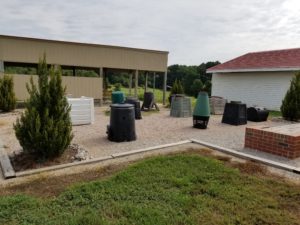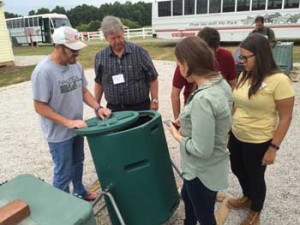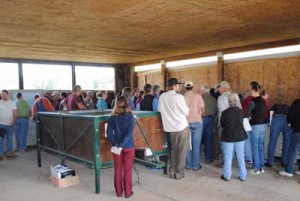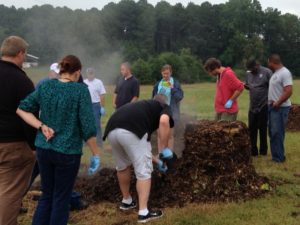NC State Compost Learning Lab
go.ncsu.edu/readext?426349
en Español / em Português
El inglés es el idioma de control de esta página. En la medida en que haya algún conflicto entre la traducción al inglés y la traducción, el inglés prevalece.
Al hacer clic en el enlace de traducción se activa un servicio de traducción gratuito para convertir la página al español. Al igual que con cualquier traducción por Internet, la conversión no es sensible al contexto y puede que no traduzca el texto en su significado original. NC State Extension no garantiza la exactitud del texto traducido. Por favor, tenga en cuenta que algunas aplicaciones y/o servicios pueden no funcionar como se espera cuando se traducen.
Português
Inglês é o idioma de controle desta página. Na medida que haja algum conflito entre o texto original em Inglês e a tradução, o Inglês prevalece.
Ao clicar no link de tradução, um serviço gratuito de tradução será ativado para converter a página para o Português. Como em qualquer tradução pela internet, a conversão não é sensivel ao contexto e pode não ocorrer a tradução para o significado orginal. O serviço de Extensão da Carolina do Norte (NC State Extension) não garante a exatidão do texto traduzido. Por favor, observe que algumas funções ou serviços podem não funcionar como esperado após a tradução.
English
English is the controlling language of this page. To the extent there is any conflict between the English text and the translation, English controls.
Clicking on the translation link activates a free translation service to convert the page to Spanish. As with any Internet translation, the conversion is not context-sensitive and may not translate the text to its original meaning. NC State Extension does not guarantee the accuracy of the translated text. Please note that some applications and/or services may not function as expected when translated.
Collapse ▲
The NC State Compost Learning Lab (CL2) is an education, research, and demonstration site in the heart of the 1,500-acre Lake Wheeler Road Field Laboratory in Raleigh, North Carolina. The site has 25 types of backyard composting and vermicomposting units, both medium and small scale, and areas for hands-on training activities. A 40-ft by 30-ft Worm Barn houses a dozen types of worm bins ranging in size from household bins to a 32 square feet continuous flow-through raised bed. A rain garden captures run-off from the roof.
If you want to visit:
- You must make an appointment. Email the Wake County Extension Master Gardener volunteers to arrange a visit
- Only adults 18 or older are allowed at the site
- Smoking is prohibited
- No pets are allowed
- No toilets or garbage service on site
- Must wear a mask inside the Worm Barn (bring your own)
- Recommend wearing closed-toe shoes
Courses and Workshops
Hands-on training courses are offered periodically about composting and vermicomposting, from small to large scale. Class attendees include extension educators, recycling coordinators, farmers, entrepreneurs, the general public, teachers, Master Gardeners, composting facility operators, and food service managers.

People from all over the world visit the site to learn about composting and vermicomposting. This includes attendees of the annual Vermiculture Conference, an annual training on large-scale vermicomposting. Speakers and participants from around the globe spend two days discussing worm farming methods.

A five-day training course on large-scale composting is offered yearly by the USCC-NC Composting Council. The training is for public and private composting operators, farmers, recycling specialists, extension educators, and other governmental agency personnel. Topics include the biological and physical processes of composting, developing feedstock mixes, site selection and preparation, odor control, and marketing.

Factsheets on composting, vermicomposting, recycling, and other waste reduction topics may be accessed from Rhonda Sherman. Check out her new book on vermicomposting!


